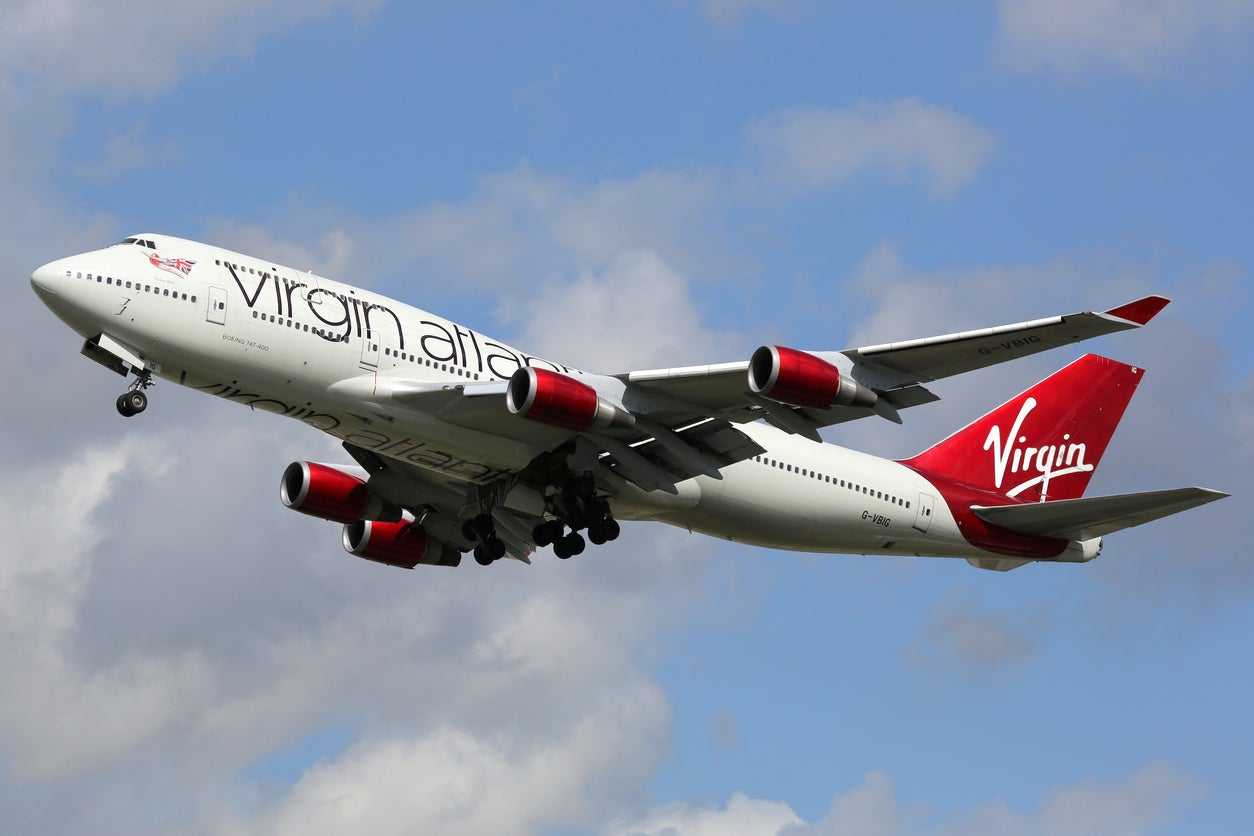Virgin Atlantic spends £10,000 flying a pilot to work on a Boeing 787
‘We investigated all possible options to relocate our pilot, and unfortunately this diversion was the only feasible option’

Your support helps us to tell the story
From reproductive rights to climate change to Big Tech, The Independent is on the ground when the story is developing. Whether it's investigating the financials of Elon Musk's pro-Trump PAC or producing our latest documentary, 'The A Word', which shines a light on the American women fighting for reproductive rights, we know how important it is to parse out the facts from the messaging.
At such a critical moment in US history, we need reporters on the ground. Your donation allows us to keep sending journalists to speak to both sides of the story.
The Independent is trusted by Americans across the entire political spectrum. And unlike many other quality news outlets, we choose not to lock Americans out of our reporting and analysis with paywalls. We believe quality journalism should be available to everyone, paid for by those who can afford it.
Your support makes all the difference.Not every passenger on Virgin Atlantic’s daily late-afternoon flight from Heathrow to Boston has enjoyed a smooth journey recently.
Last Thursday, flight VS11 diverted to Bangor, Maine – hundreds of miles short of its final destination – because of bad weather at Boston. And on Friday, 226 passengers were delayed by more than 90 minutes because their Boeing 787 was used as a taxi to take a pilot to Manchester.
As passengers checked in, they were handed a letter which began: “Your flight to Boston will be operating via Manchester today.
“In order for us to ensure our customers are able to fly from Manchester to New York today, we need to fly one of our pilots to Manchester. We have looked at other options to achieve this, but this is the only option available to use.”
The wide-bodied plane took off as normal from Heathrow, but spent barely half an hour in the air before touching down at Manchester.
Passengers had been told: “You will remain on board the aircraft during our short stop in Manchester Airport.”
The plane spent around around 90 minutes there because the original flight could not carry sufficient fuel for the transatlantic journey, and so the tanks needed to be filled before the plane could continue.
Eventually the plane left Manchester more than two hours late, but made up some time and arrived in Boston 96 minutes behind schedule.
Passengers waiting in Boston for the Boeing in order to return to Heathrow were also delayed by around two hours.
A spokesperson for Virgin Atlantic said: “Unfortunately one of our pilots in Manchester fell unwell and therefore, rather than cancel a flight, we took the decision to take a pilot from our London Heathrow base to operate the aircraft.”
The pilot was needed for flight VS127, which eventually departed at around the same time as the diverted Boston flight.
Given the enormous cost of using a Boeing 787 to ferry a member of flight crew, it seems an extreme decision.
Besides the cost of several thousands of pounds of extra fuel, Virgin Atlantic would have had to pay extra air-traffic control and airport handling charges. Also significant is the cost of an additional take off and landing, in terms or wear and tear on the airframe and engines.
The total bill is likely to be in excess of £10,000 – as well as the additional environmental impact of an extra cycle of a large aircraft.
The pilot originally intended to fly the Manchester-New York flight had fallen ill almost four hours before the Heathrow plane took off. No other pilots for the aircraft type, an Airbus A330, were available in Manchester.
On Friday a lineside fire closed the West Coast main line between London and Manchester, meaning that a Virgin Train was not a possibility. The sudden closure also meant that the only domestic flights between Heathrow and Manchester, operated by British Airways, immediately filled up for the rest of the day.
An ordinary taxi from Virgin Atlantic’s base at Heathrow Terminal 3 to Manchester airport should take three hours and eight minutes, according to AA Routeplanner – though Friday afternoon congestion would have added to the time taken.
While a helicopter or fixed-wing air taxi would have been much more expensive, it would have been cheaper than diverting a B787 – which delayed the passengers by more than 360 person-hours in total.
The Virgin Atlantic spokesperson said: “We never want to disappoint our customers, nor make unnecessary diversions, and this was the only option available aside from cancelling flight VS127.”
Cancelling the Manchester-New York would have disrupted the plans of passengers at both ends of the route.
As it was, the plane on which the original pilot had fallen ill took off five and a half hours late. Each of the 228 passengers on it qualified for €600 (£530) in compensation under European rules – but the travellers on the “taxi” flight do not, because the delay did not qualify.
“This was a very exceptional situation and we’d like to thank our customers on the VS11 for their understanding for the minor delay they experienced,” said Virgin Atlantic.
Join our commenting forum
Join thought-provoking conversations, follow other Independent readers and see their replies
Comments